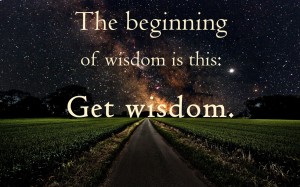Job Seeking Sales Process
As recruiters serving the restaurant industry, we speak with candidates all day who are looking for a new career in the restaurant biz. Most of these candidates are great cooks and can conclude this fact about making a great meal: the quality ingredients used to cook a meal will determine the quality of the end product. This is quite obvious to most of us but here is what is not so obvious to these career seekers: the quality of the ingredients you put into your job search will also determine the end product. The fact is, if you want a great career… you HAVE to have a quality career finding process.
I speak with so many job seekers who are perplexed at the lack of response from their resume submittals via the internet. In many instances, these job seekers are submitting hundreds of resumes only to hear very little response. Internet resume mining that most companies now employ have changed the way resumes are looked at. I recently posted a position for a Director of Operations and received about 120 resumes for the position within a few days. With so many resumes pouring in, hiring managers control their time by VERY quickly vetting resumes. I usually make a judgment as to whether the candidate’s resume MIGHT be a fit in 10-20 seconds of looking at it. This begs the question, “How you can you turn this problem into an opportunity?” I believe the opportunity lies in a paradigm shift from the thoughts, “Let me throw a wide net of resumes out and see who will give me an interview,” to viewing the resume writing / delivery process as a greater self-awareness activity and then, the discovery of your ideal career fit.

Marketing yourself for a job is a sales process. You must understand the most effective sales cycle and variables in order to set yourself up for success in hitting your target. Upon understanding this reality, I have begun to see the elements of a successful sales process and how it can help job seekers maximize their efforts to obtain a great career fit.
In the coming weeks, I’m going to detail the job seeker sales process. I have walked dozens of job seekers through this rationale. In every instance, it has led to greater introspect, self-awareness and in most cases, a set up to a much more strategic job seeking process. For right now, we will discuss two ideas of this method to further break down the details that will only benefit in the long run.
1. Product Knowledge – The first element in the sales cycle relevant to job seeking is truly knowing what you offer. In the sales world, we call this product knowledge. Without being aware of who you are, what motivates you and what you offer employers, you are missing the fundamental information you need to market yourself well. It seems that the resume writing process becomes a remedial task for many seekers, but the reality is this is the foundational element – knowing what you have to offer an employer. Before you hone in on writing a resume, I recommend deep reflection upon past successes and failures in your career. This reflection is essential to pull out awareness. I often encourage frustrated job seekers to an exercise that I call the CAREER GRAPH. The CAREER GRAPH is an elementary exercise with profound realization. Very simply, draw a horizontal line on a piece of paper and chart the high points and low points of your career path. After doing so, ask yourself in depth questions about what made those high points and low points. These questions should include:
- Did I have a high degree of autonomy?
- Was this a structured or unstructured environment?
- Was this a large or small organization?
- What was the mission of this company?
- How was my communication with my supervisors / subordinates?
- What were the inputs / outputs of my job here?
- Was I using my strongest skills in this job?
Reflecting on these questions and others will help you pull out common denominators to discern what you do and don’t want in a career setting. The self-awareness that will follow will lead to the product knowledge of how you are equipped to best succeed in a job and what elements need to be present.

Once you have the product knowledge to understand who you are, you are able to build your resume to highlight the strengths of who you are and how those skills / abilities have played out in career accomplishments. Dig deep and don’t be general. Utilize ratios, increases and other numeric accomplishments that really show the output of your input. Numbers and ROI quotients are what pops on a resume. Once you understand your true abilities, ask yourself and reflect how these abilities have returned profit for your employer. When doing so, think strategically to realize the cost associated with non-ideal performance.
To truly capture your worth to an organization, you must understand the true profitability measures of all aspects of business. There are many costs that do not show up on the P&L, but can drastically reduce bottom line. Communicating these is also important on a resume. For instance, if you have been a part of developing three employees to a supervisory role, start to realize the cost associated with the externally hiring those supervisors. Another great example is creating an environment of retention. Research shows the turnover of a manager costs a company 150% of that managers’ salary. If you are GREAT at creating a work culture where managers are retained, you are greatly affecting the bottom line.
This is only one step of the process. There are many ingredients that are involved with efficiently writing an outstanding resume, in which we will go into further detail at a later date. It is our hope here at AGI that you will use these processes in order to set yourself up for success!


